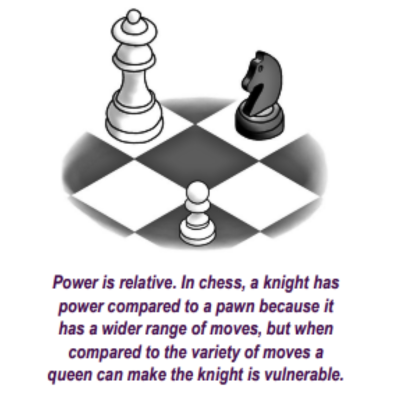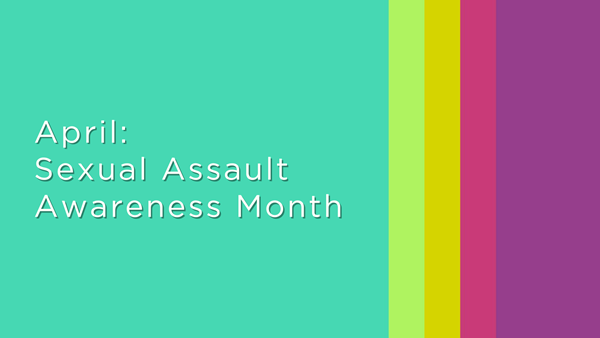In the beginning, God created all of us in the image of God. It’s such a simple statement, right?
In ¶161(F) in The 2016 Book of Discipline of The United Methodist Church we find these words, “We reject the erroneous notion that one gender is superior to another, that one gender must strive against another…..” How well are we as a denomination living into this foundational belief as United Methodist?
Sexual misconduct is fueled by deeply rooted attitudes about power, authority, gender, and race and will be prevented when these attitudes are challenged and overhauled. Roots determine how well we grow. Take the time now to examine your own attitudes and beliefs. When a person in a position of inherent power chooses to misuse and abuse this privilege and resource, sexual misconduct may happen. For some, the position of greater resources and dominance supports a belief that this is a free ticket to belittle, demean, and/or degrade a person with fewer resources.

To prevent and respond well to this problem, it is important we understand the definition. According to U.S. Equal Employment Opportunity Commission (EEOC), sexual harassment is a form of sex discrimination that is in violation of Title VII of the Civil Rights Act of 1964. It can include unwelcome sexual advances, requests for sexual favors, and other verbal or physical harassment of a sexual nature. It also includes gender directed offensive comments. Paragraph 161 (I) in The United Methodist Church 2016 Book of Discipline, defines sexual harassment as “any unwanted sexual comment, advance, or demand, either verbal or physical, that is reasonably perceived by the recipient as demeaning, intimidating, or coercive. Sexual harassment must be understood as an exploitation of a power relationship rather than as an exclusively sexual issue. Sexual harassment includes, but is not limited to, the creation of a hostile working environment resulting from discrimination based on gender.”
Though people of all genders are harassed, the majority of victim/survivors reaching out to The General Commission on the Status and Role of Women for answers and support are women. According to a report from Vanderbilt Law School, most victims are younger women, oftentimes in lower-level positions, and frequently supervised by the opposite sex. Within the Church, we know you do not have to be employed to be harassed. Laity are often the ones calling for help and/or filing formal complaints. Clergy also experience harassment by laity. The Vanderbilt report also notes harassment especially prevalent in organizations with male-dominated structures.
In an August 3, 2022 NYT article by Amanda Taub she shares this information from her interview with Nicole Bedera, a sociologist who studies the ways that groups and institutions enable sexual violence.
“We get caught up in the details of individual cases as if each one of them is different, and each organizational response is different, but that’s not true,” she said. “The finer details might change a little bit from case to case, but the organizational response to sexual violence in general tends to be pretty consistent, especially in organizations that are allowed to self-police or to self-govern.”
People who brought abuse claims, she found, were often treated as presumptively untrustworthy or mistaken. When victims reported abuse, institutions like universities, schools or churches tend to react with doubt and skepticism. That doubt was used to justify inaction, enabling the abuse to continue. “What I’ve found is people won’t say ‘I don’t believe the victim.’ They’ll just say ‘I’m not sure enough.’ Institutional betrayal for the complainant is very traumatizing for the complainant who has turned to the church for help.
It takes courage to speak out about an experience of sexual misconduct perpetrated by a spiritual leader within the Church. The UMC is no exception. We are taught to trust our leaders as they live into their relationship with us based on a sacred trust.
Related Links:
— The Complaint Process Flowchart
— Do No More Harm
— Policies
— NSVRC Resource Toolkit
— NSVRC Prevention Demands Equity
- Do we ALWAYS respond with appreciation for the information brought forward?
- Do we ALWAYS make sure complainants understand the importance of not attending meetings alone and offer a trained support person to walk alongside?
- Do we ALWAYS state clearly and provide in writing the next steps to be taken. Are these given to the parties named in a complaint?
- Do we ALWAYS focus on holding persons accountable and offering healing to all affected?
- When appropriate, do we ALWAYS prioritize the use of trained Response Teams for healing with congregations and staff?
- Do we ALWAYS assess transparency in our communications in the complaint process?
What if we were no longer silent bystanders and committed to helping hold one another accountable?
The General Commission on the Status and Role of Women is mandated to provide resources aimed at eradicating the problem of sexual harassment in our church and society. Therefore we have created resources for churches to prevent sexual misconduct, resources to guide individuals in the process of navigating sexual misconduct and develop legislation to eradicate sexual misconduct within The United Methodist Church.
As we move toward General Conference in 2024, I am asking you to take an active stand. I am asking you to take the risk of being uncomfortable in speaking up to say this behavior is unacceptable and pledging to not be a silent bystander.
The courage modeled by victims in reporting sexual harassment begs us to respond better. We must. It is the right thing to do for God’s world.
Our Confidential Toll-Free Number 1-800-523-8390
For support please call this number to talk with someone at The General Commission on the Status and Role of Women. UMSexualEthics.org is a dedicated website to provide information for laity, clergy, church leaders, and anyone interested in finding resources on how to respond to and prevent sexual misconduct in The United Methodist Church.
Becky Posey Williams is the Senior Director of Sexual Ethics and Advocacy for GCSRW. She loves the outdoors and actively seeks opportunities to be in nature. Becky is a native Mississippian and proud mother of Rebecca.

